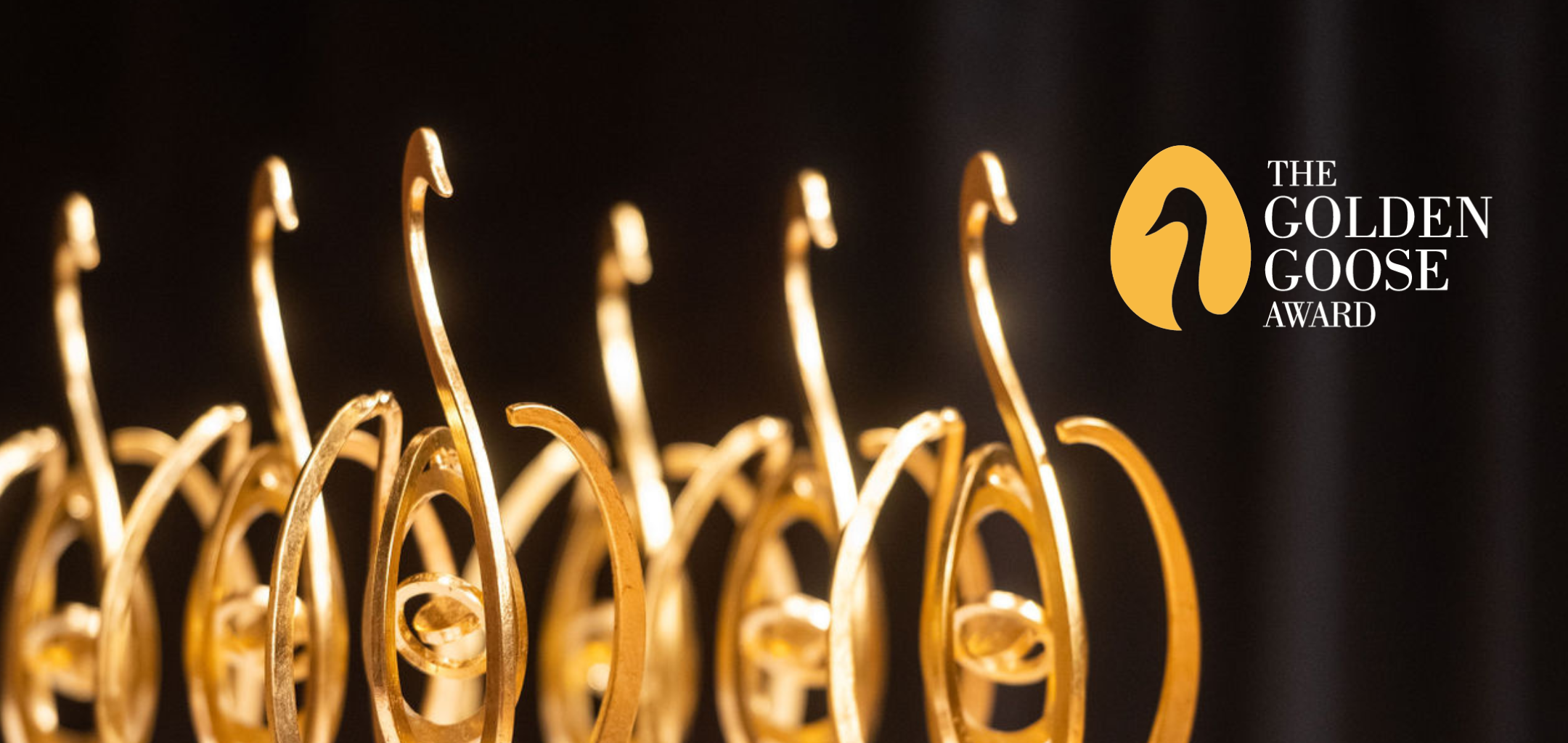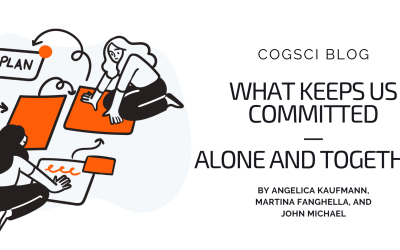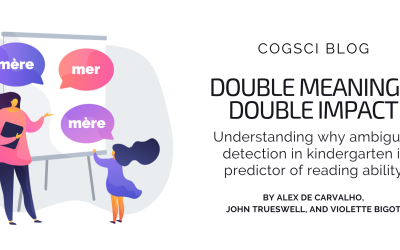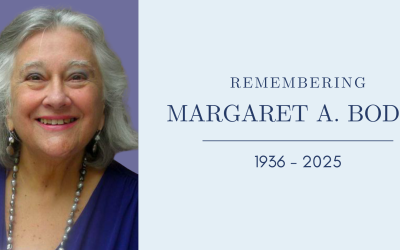The Golden Goose Award celebrates individuals or teams whose federally funded research has led to significant scientific breakthroughs and societal impact. This year, cognitive scientists David Rumelhart, James McClelland, and Geoffrey Hinton have been recognized for their pioneering work on the Parallel Distributed Processing (PDP) framework during the late 1970s and early 1980s. The award ceremony was held at the US Library of Congress at Washington, D.C. Three members of Congress, a US senator, and the heads of the American Association for the Advancement of Science and the Association of American Universities were among the speakers at the event.
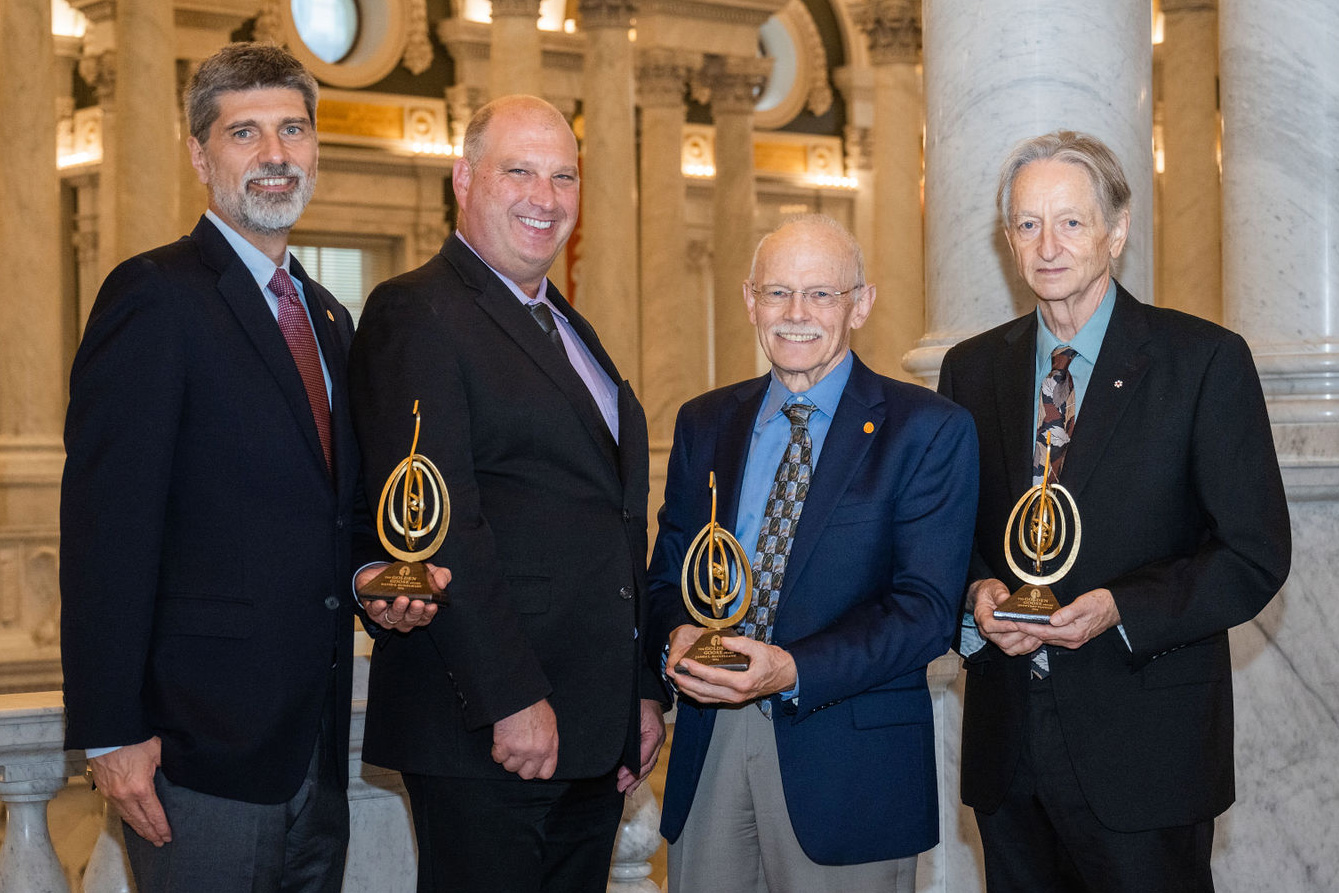
Karl Rumelhart and Peter Rumelhart, James McClelland, Geoffrey Hinton (photo by Linnea Farnsworth)
The PDP framework explains human cognition using neural network architectures, which are motivated by the structure and the function of neurons in the brain. Just like the brain is made up of a network of neurons that give rise to cognitive abilities, neural network architectures consist of interconnected artificial neurons known as nodes that transmit information through different weights. Neural networks learn from examples and can use past learning to respond to new, previously unseen patterns. These PDP networks offered a novel understanding of human cognition by combining neurally-inspired mathematical models with innovative learning algorithms. This approach resulted in a major paradigm shift in cognitive science.
Decades later, PDP continues to have significant scientific and societal impact. The learning algorithms proposed in PDP form the foundation of today’s explosion in artificial intelligence. Large Language Models (LLMs) — like ChatGPT — are one well-known application of PDP. Combining gigantic neural networks with training on huge amounts of text, LLMs are able to answer questions about almost everything and even translate between different languages.
Cognitive Science Society congratulates the winners on this well-deserved recognition of their groundbreaking contribution, which has greatly shaped the field of cognitive science.
Read more about the awards on the Golden Goose Award website.
